Body Piercings: Pros, Cons, & How To Prevent Complications
Following the proper aftercare tips is crucial for healing a piercing the right way.
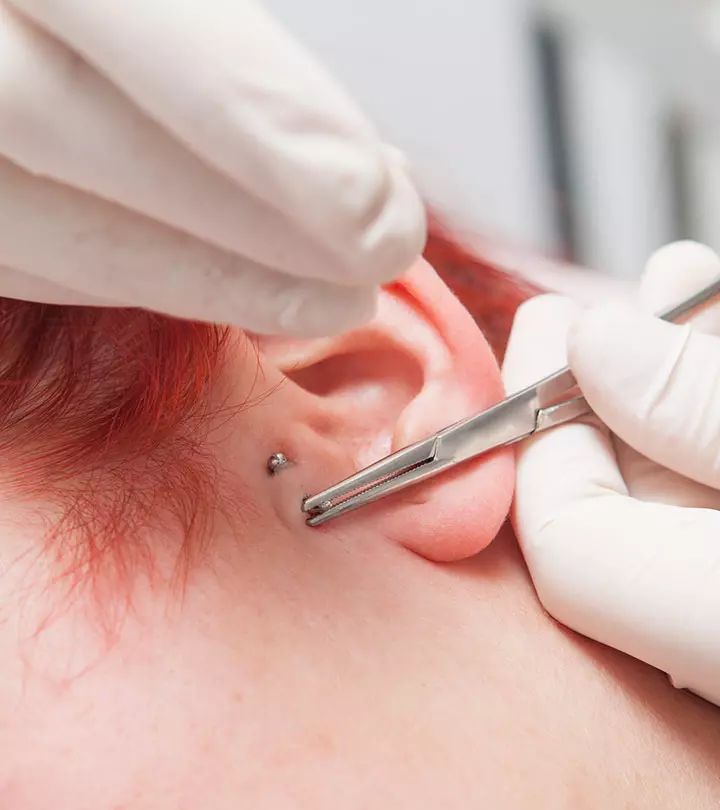
Image: iStock
Body piercings are considered the most fashionable form of body modification. Ears and nose piercing has been around for centuries, but now you can also see people getting their lips, tongue, cheeks, eyebrows, belly buttons, and nipples pierced. Earlier, body piercings were done as part of religious practice, but it has changed dramatically. Most of the youngsters consider it chic, cool, and appealing. However, body piercing also has its pros and cons. Keep reading to know more!
In This Article
Body Piercings
Body piercings are an age-old trend among men and women in many countries. Ear and nose piercings were common for many centuries, maybe from the time women have had the sense of beautifying themselves with ornaments and jewelry pieces like earrings and nose rings. Didn’t we all get amazed when we used to see Rajasthani dances on television and the amount of heavy jewelry women used to carry on their body?
Nowadays, boys and girls have gone so crazy that they go to the extent of getting chin, lips, tongue, belly button, and even eyebrow piercings. They are easy to get, and thousands of establishments offer body piercings at a fairly considerable rate.
 Did You Know?
Did You Know?Take a look at these crazy female body piercings. You’ll be amazed. These crazy piercings are called ‘corset piercing’.
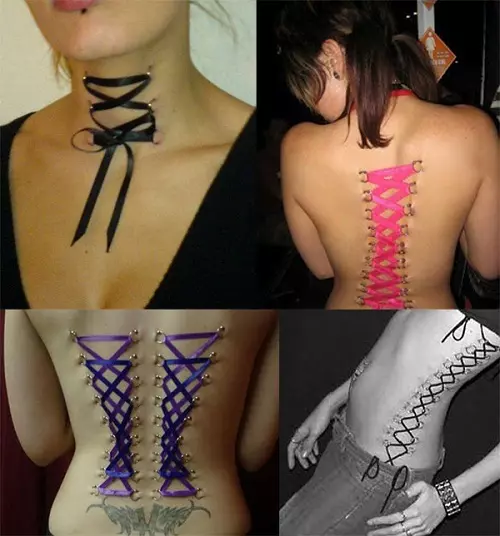
If any of you are planning to get a piercing done, why don’t you check out the health hazards that come along with it.
Key Takeaways
- Body piercing is an age-old form of body modification. A hole is introduced in the body and often adorned with jewelry.
- Piercing can be done on any part of the body, including the lips, chin, eyebrows, tongue, and belly buttons.
- However, piercing may cause scarring, bleeding, and infections so it is advisable to get a professional to do it.
- Proper aftercare is essential to ensure the risk of infections and other complications.

Cons Of Body Piercing
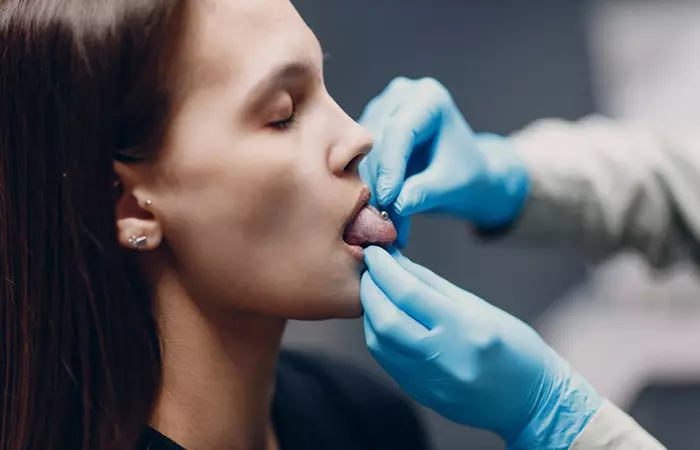
- Ear piercings are the most common and don’t pose a lot of health hazards. However, Maine Lyn, a blogger, shared her ear-piercing experience and how it left her with swollen and itchy ears for a few days. “It got mildly infected. I waited it out and it healed. Crooked beneath the surface – like when I inserted new earrings, it was hard to find the back of the piercings. The holes didn’t close up so I left them alone (i).” Post the infection, the blogger reported that she also found it difficult to wear heavy earrings as it would hurt a lot.
- The jewelry metal usually used for piercings is nickel, and some skin may be allergic to this metal, leading to a metallic reaction that causes infection.
- You may face other issues which may include bleeding, tissue trauma, like scarring, skin/tissue tears (for example, a torn earlobe), or bruising. It is estimated that as many as 20 to 25 percent of people who have a body piercing have one of these issues.
- The extent of infection also depends on the body part being pierced, like if it is on your belly button, the risks of infections are high (even if belly button piercing may look uber cool and sexy); whereas those on your earlobes have a lower risk.
- When done on tongue, it may break your teeth or infect your gum. It may also result in swelling of your tongue, causing difficulty in eating.
- However you wouldn’t know if the equipment used to pierce has been sterilized after every use which may even lead to fatal diseases like HIV or Hepatitis.
- Tetanus can occur from any skin injury, so tetanus vaccination should be up to date before a piercing on the body is done.
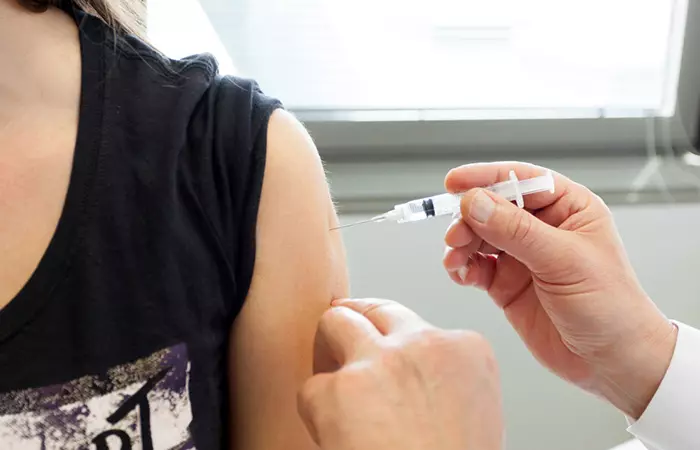
 Quick Tip
Quick TipBefore getting a piercing done, ask yourself a thousand times if you’re even ready. These risks are not to be taken under influence of drug or alcohol or a stupid silly bet. It may cost you your health.
Also, a licensed and reputable piercing studio is the best way to ensure your safety and minimize health risks associated with body piercings. A licensed studio is more likely to follow strict health and safety regulations, such as sterilized equipment, disposable needles, and proper sanitization of the workspace. Strict hygiene protocols help prevent infections, allergic reactions, and the transmission of bloodborne diseases like hepatitis or HIV. In addition, professional piercers in any good studio would know how to do the piercing properly. The chances of complications from improper placement or trauma to the skin are minimized. Choosing a licensed studio can also help to avoid potential long-term effects of body piercings, such as scarring or nerve damage. Cleanliness and professionalism provide a better and safer experience.
How to care for piercings?
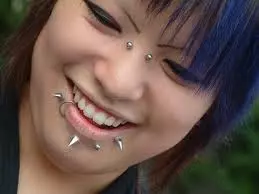
- Piercings on tongue, lip, or cheek should be done with special care. Wash your mouth with an antibacterial, alcohol-free mouth rinse for at least 30 seconds so that no food particles stick to the jewelry piece.
- If you have any portion of your skin pierced, take care to wash that part with an antibacterial soap at least twice a day. Remove any blood or pus with a cotton swab. Be gentle in what you do.
- Avoid swimming while your piercing is healing.
- Keep clothing away from your piercing. Friction may cause irritation on your skin.
- Don’t keep fiddling with the jewelry unless your skin in the pierced area has healed completely.
Celebs like Scarlett Johansson, Lady Gaga, and almost all models are flaunting piercings these days.

If the question arises as to whether piercings are acceptable or not, check these out:
“Piercing becomes an outlet for those girls who want to grab attention to make up for the lack of purpose they suffer from.”
“God endowed girls with the gift of femininity and when they pierce their lips or eyebrows they are destroying that.”
How To Treat An Infected Piercing Site
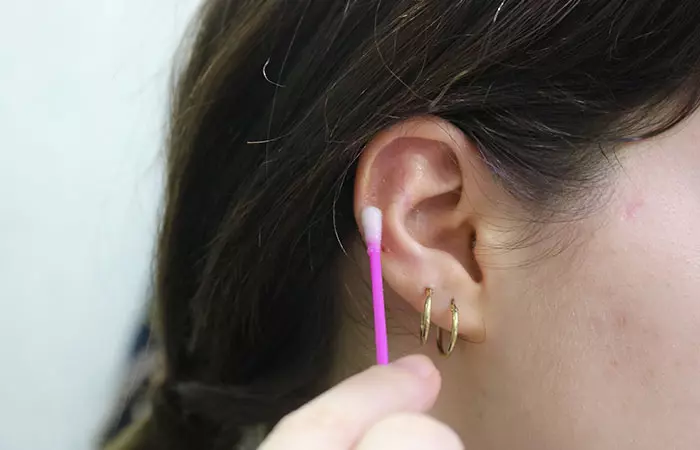
New body piercings remain at an increased risk of getting infected. A few weeks after getting a piercing done, the site may feel itchy and tender, appear red, and form a crust. However, if the area around it feels hot, swollen, and painful, or there is blood or pus secretion, or fever, your piercing might have gotten infected. Fortunately, proper care and cleaning can help treat the infection. Follow the steps below:
- Wash your hands properly before touching the site of piercing.
- Clean the area with a saline solution twice a day.
- Apply antibacterial ointment on and around the infected area.
- Press warm compress for at least 5 minutes, once a day.
If the pain persists or worsens with time, it calls for immediate consultation with a doctor to prevent further health complications.
Infographic: Best Ways To Take Care Of Piercings And Infections
Body piercings are no longer uncommon. Despite their drawbacks, the love for piercings remains strong. The key to a good piercing is to know how to care for it and treat infections if they occur. There are a few things you need to know if you are getting a body piercing, from cleaning it to avoiding certain activities. Check out the infographic below to learn more about piercing aftercare and infection treatment.
Illustration: StyleCraze Design Team
Body piercings have become a global trend and are here to stay. There are various types of piercings to choose from, whether you are looking for something subtle or want a more daring statement. If you want to go for it, make sure to follow the required precautions to avoid any harmful side effects and complications that may cause infection and other issues. Taking protective measures before the piercing and a thorough aftercare is an absolute must for proper healing. And do not hesitate to consult a doctor if you come across any rashes, skin infections, and the like. If done the right way, your body piercings will make you stand out from the crowd, and you will surely be the showstopper you have always wanted to be.
Frequently Asked Questions
How long does it take for different piercings to heal?
Healing times vary with the type of piercing and the individual’s body. For example, earlobe piercings are the fastest healing at around 3 to 6 weeks, while helix piercings in the cartilage take up to 6 to 12 months. The nose piercings have a longer healing time of 6 to 12 months if frequently disturbed. Navel piercings are one of the longest to heal, sometimes taking about 12 months to heal fully. Tongue, nipple, and other types heal more promptly: 4-6 weeks for tongue, 3-6 months for nipples. One must not forget to follow all proper aftercare and be aware that everybody’s piercing location and personal hygiene practices can influence the healing time.
Can I change my jewelry immediately after getting pierced?
It is not recommended to change your jewelry right after getting pierced. For most piercings, including earlobe piercings, leaving the initial jewelry in for at least 6 weeks is recommended to allow proper healing. Changing jewelry too soon may introduce bacteria into the fresh wound, increasing the risk of infection and complications. The initial jewelry is specifically chosen for its material and gauge to support healing. After the recommended healing period, you can safely change your jewelry, but it is essential to monitor for any signs of irritation or discomfort.
What piercing takes the longest to heal?
Piercings in your genital area are the most sensitive and take the longest to heal.
What is the Medusa piercing?
It is the piercing done just above the upper lip close to the cupid’s bow.
Who shouldn’t get piercings?
People suffering from circulatory or clotting complications, having diabetes or ischemia should not consider body piercing without medical consultation.
Can you shower after a piercing?
Yes, you can shower and keep the piercing area clean with an antibacterial soap.
What hurts more belly piercing or nose piercing?
Nose cartilage piercing tends to hurt more than belly piercing.
What is an Industrial piercing?
Industrial piercing consists of two piercings connected with a single piece of jewelry. This kind of piercing is usually done on the upper ear cartilage.
Illustration: Body Piercings: Pros, Cons, & How To Prevent Complications
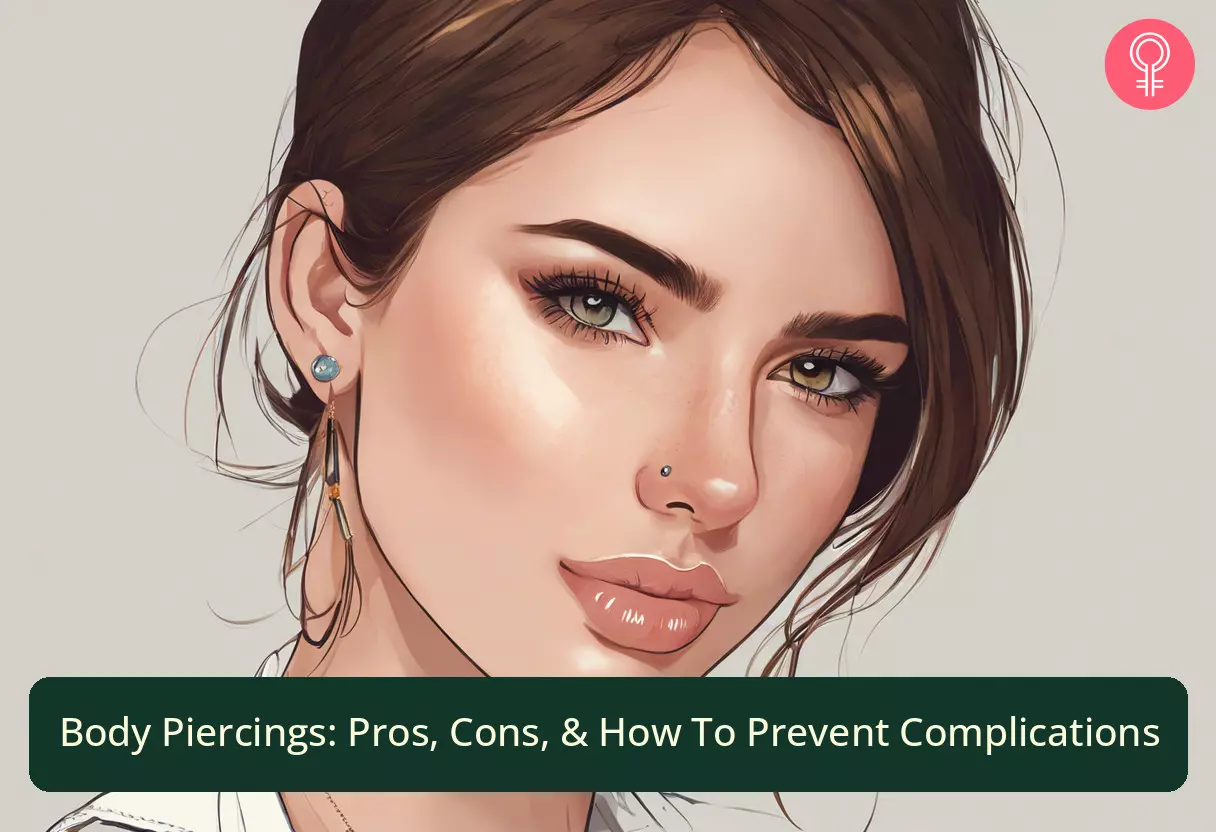
Image: Stable Diffusion/StyleCraze Design Team
Learn how to heal your ear piercings quickly with these easy tips! Get the best advice on aftercare and find out how to speed up the healing process in the following video.
Personal Experience: Source
StyleCraze's articles are interwoven with authentic personal narratives that provide depth and resonance to our content. Below are the sources of the personal accounts referenced in this article.
i. My Ear Piercings Experiencehttps://mainelynreviews.blogspot.com/2018/01/my-ear-piercing-experiences.html
References
Articles on StyleCraze are backed by verified information from peer-reviewed and academic research papers, reputed organizations, research institutions, and medical associations to ensure accuracy and relevance. Read our editorial policy to learn more.
- Body Piercing Infections
https://www.ncbi.nlm.nih.gov/books/NBK537336/
Read full bio of Dr. Priya Gill
Read full bio of Jyotsana Rao
Read full bio of Asmita De
Read full bio of Vaishali Sinha






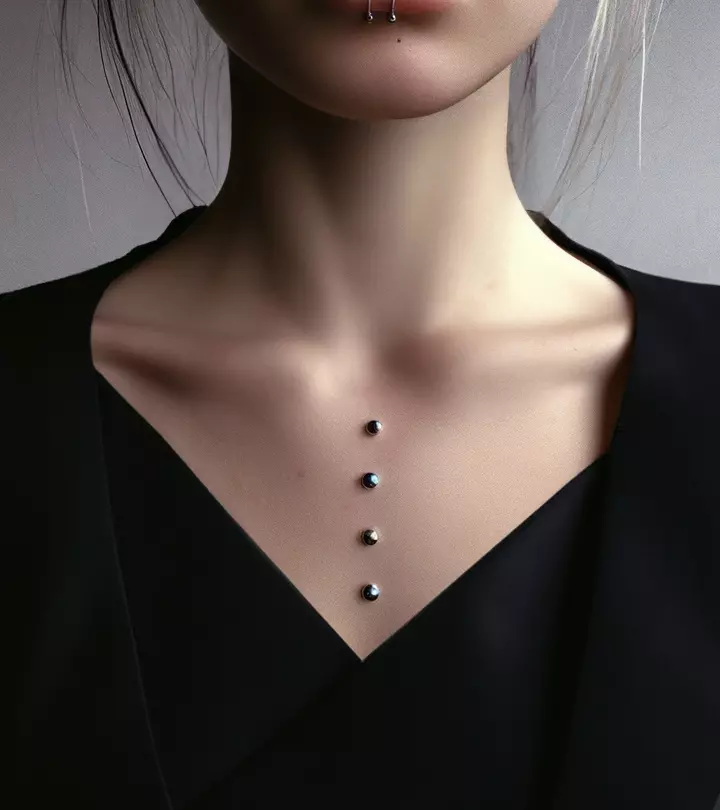




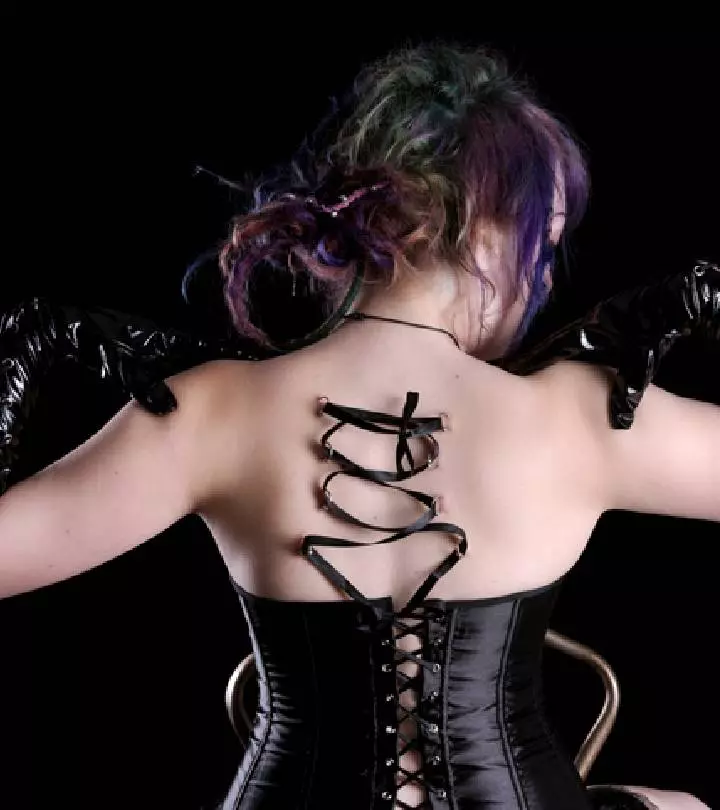
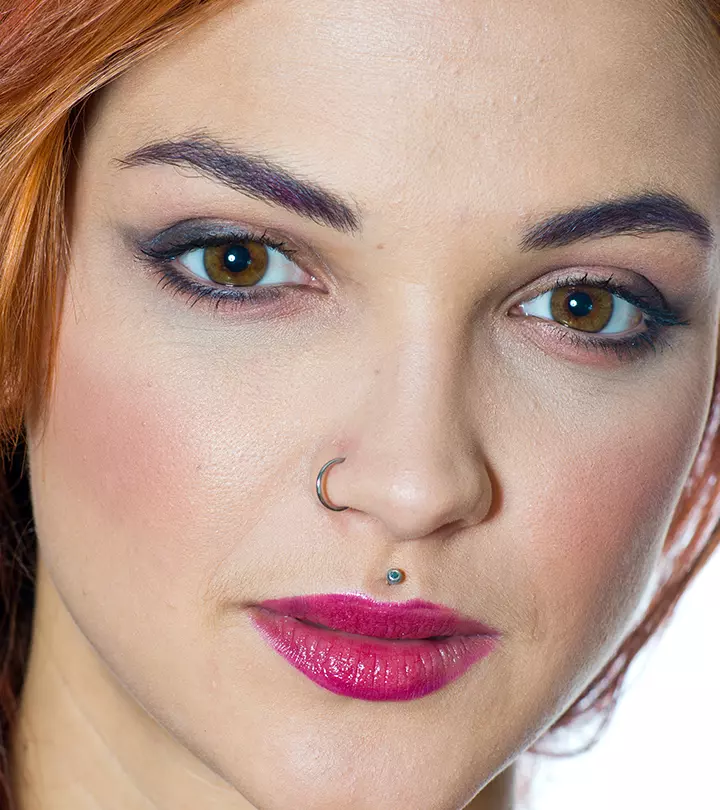


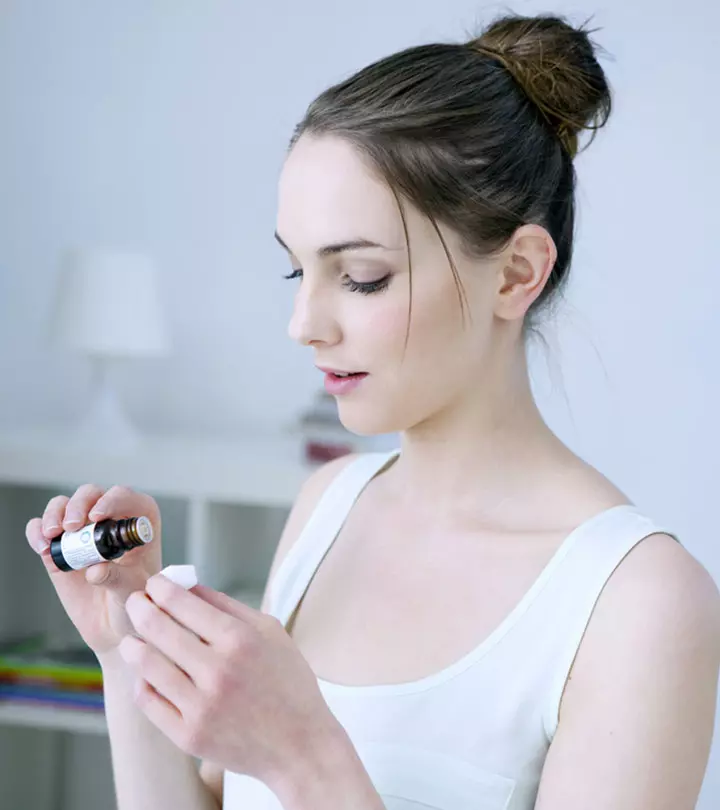
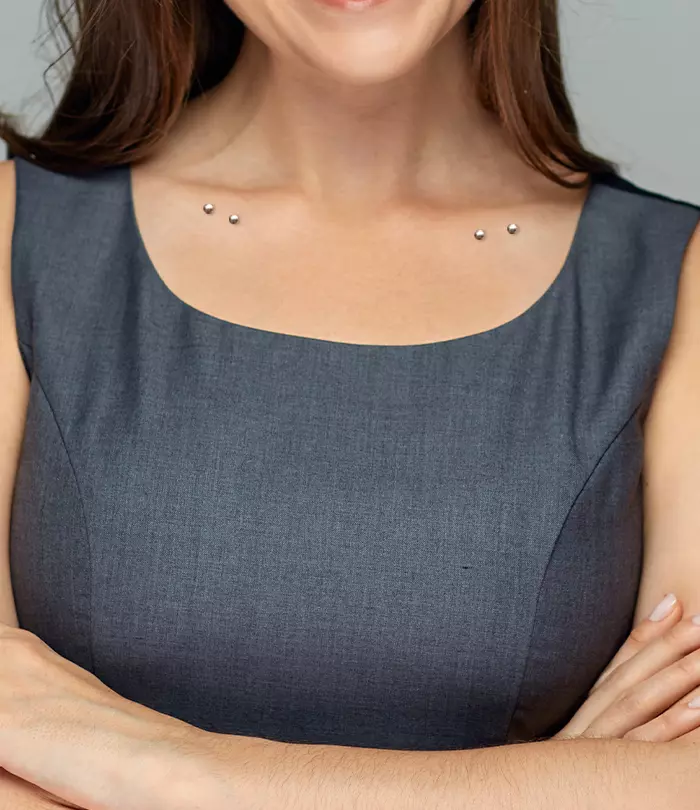

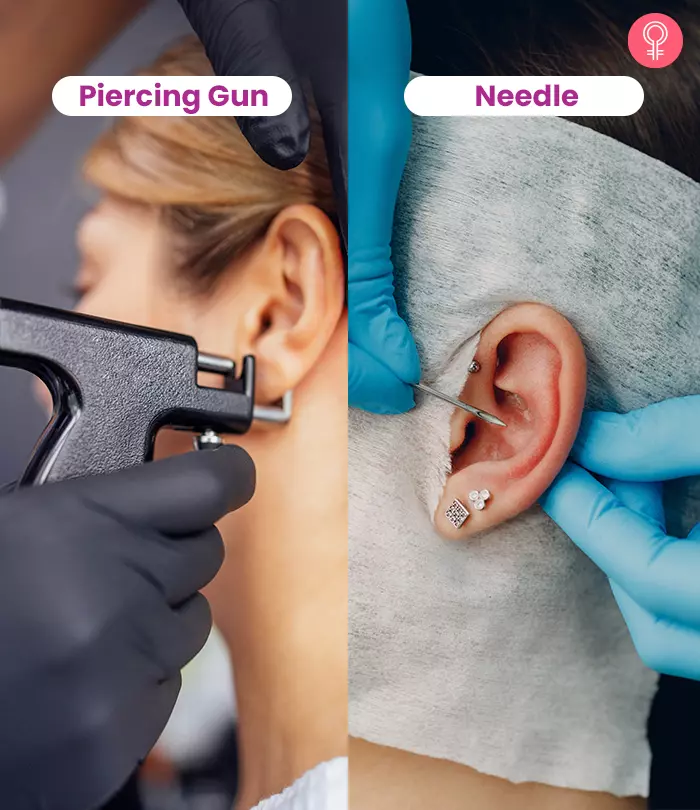
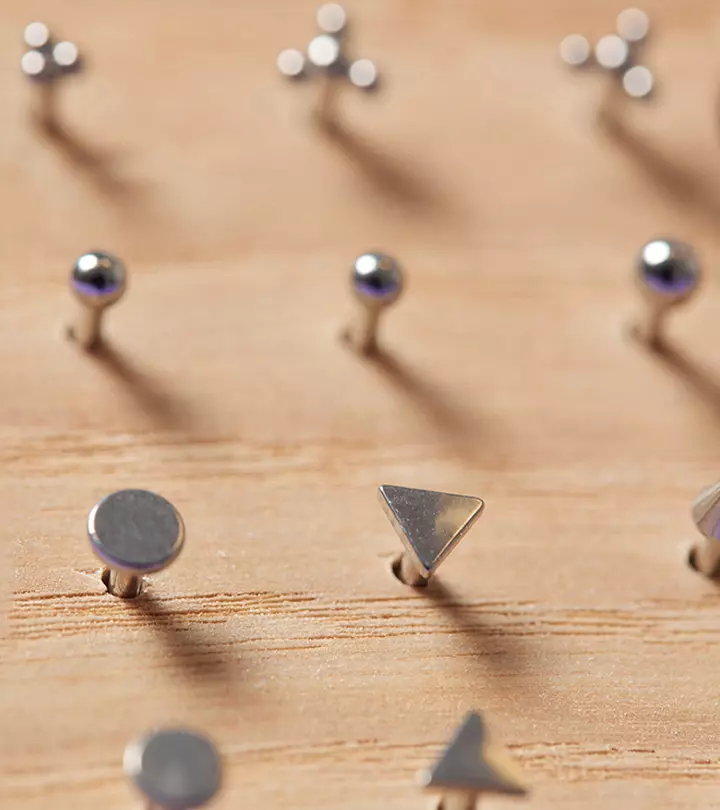

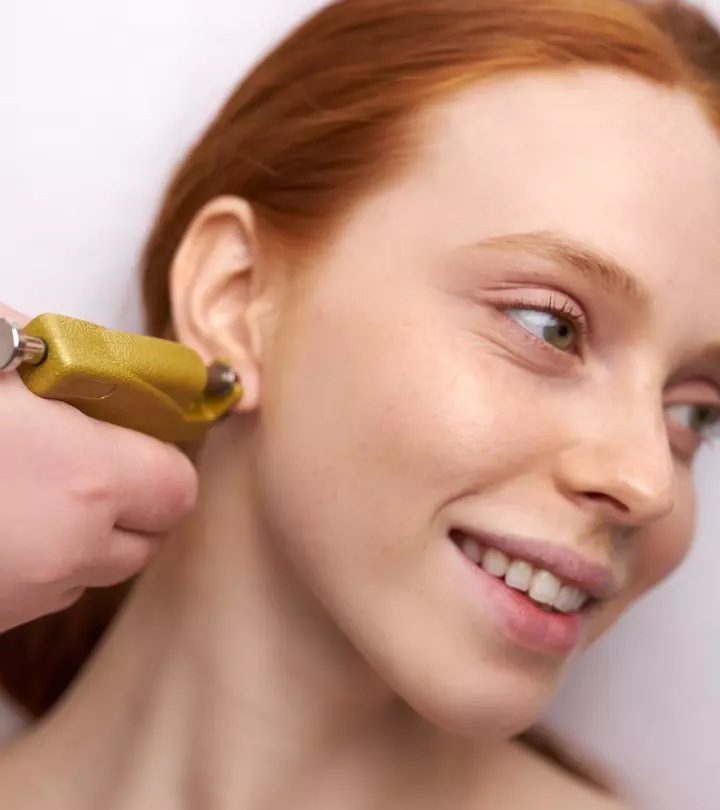
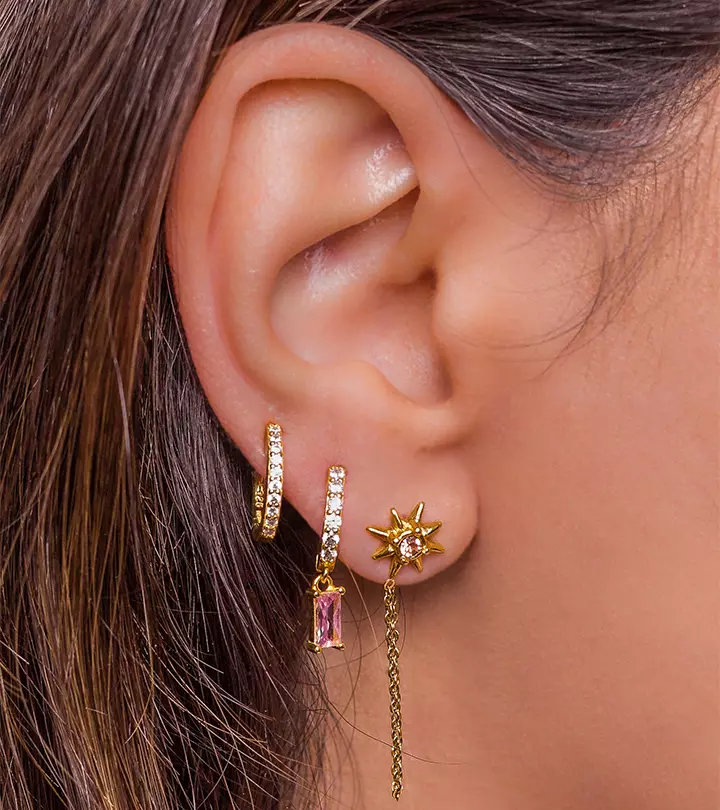
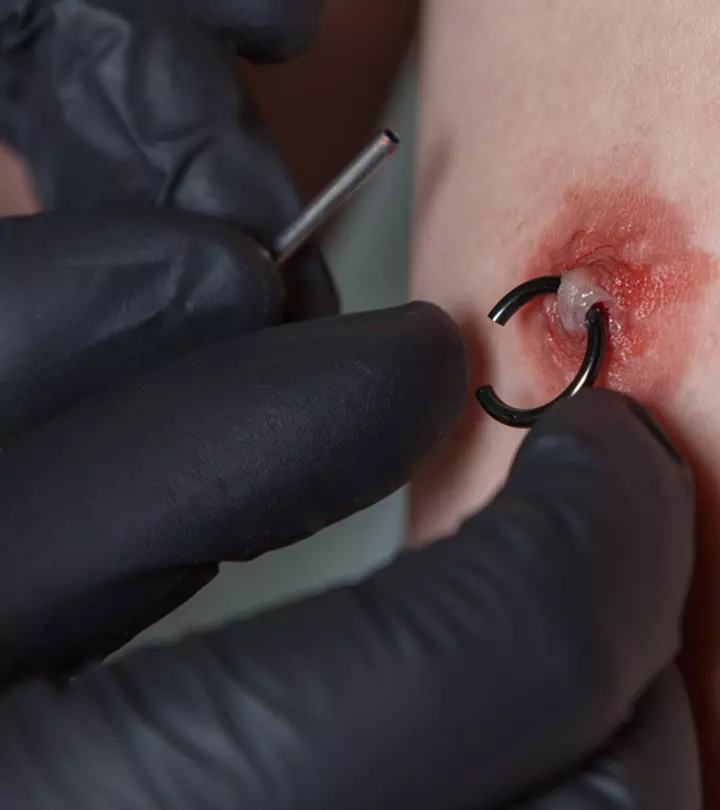
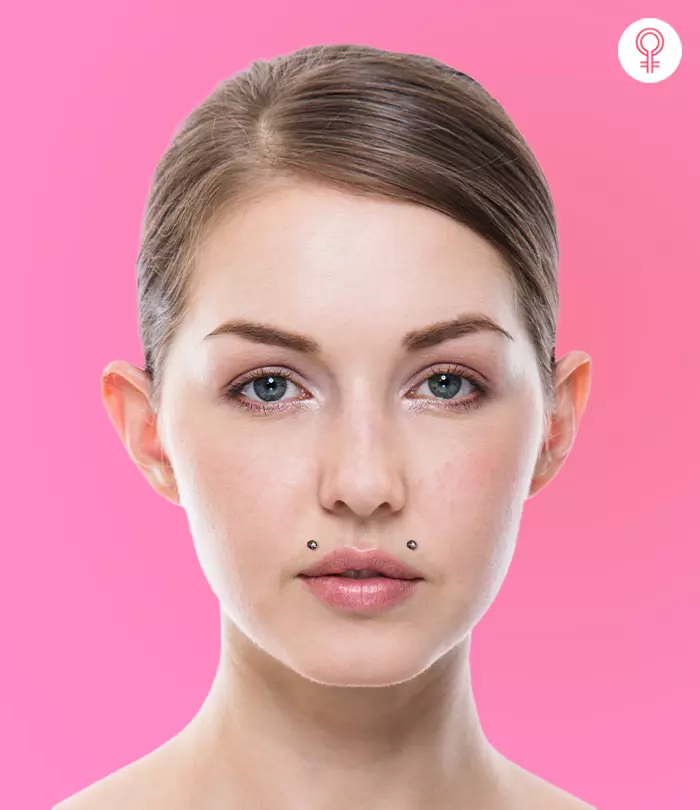
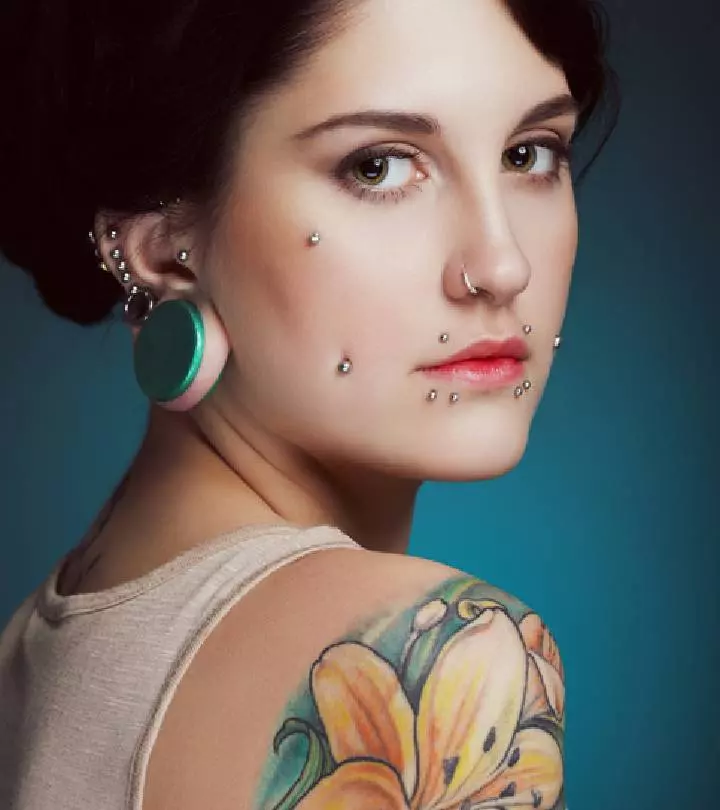
Community Experiences
Join the conversation and become a part of our empowering community! Share your stories, experiences, and insights to connect with other beauty, lifestyle, and health enthusiasts.